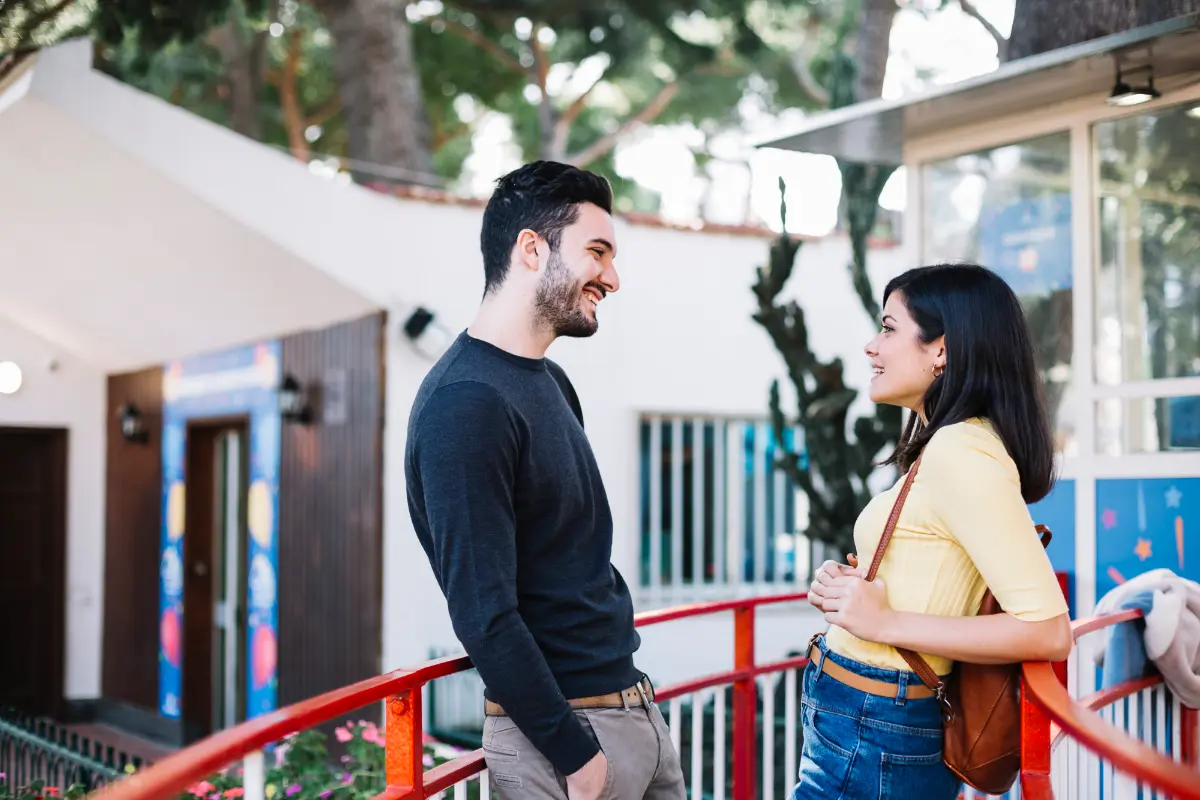Wisdom for Relationships: Welcome to a voyage of learning about relationships’ ancient wisdom—a wealth of knowledge that can improve your interpersonal interactions, fortify ties, and result in satisfying, long-lasting relationships. Relationships shape our mental health, personal development, and happiness and are an essential element of human life. We hope that this article will serve as a thorough resource for navigating the intricacies of relationships. It is based on both professional knowledge and personal experience.

Relationship Wisdom: Understanding the Foundations
In this section, we will delve into the fundamentals of relationships and examine the essential components that go into creating and sustaining lasting bonds.
Establishing Communication and Trust
Every successful relationship is built on a foundation of trust and open communication. Effective communication promotes empathy, mutual respect, and understanding, while trust functions as a glue to keep partnerships together in trying circumstances.
Trust, honest communication, and sincere understanding are the foundations of a good partnership. – Unknown
Relationships and Emotional Intelligence
In order to successfully navigate the ups and downs of relationships, emotional intelligence is essential. Individuals who have developed their emotional intelligence are better able to identify and control their own and their partners’ emotions.
The Strength of Empathy
We can have a strong connection with others because empathy allows us to put ourselves in their situation and comprehend their thoughts and feelings. Building empathy increases compassion and fortifies the emotional connection between people.
The secret to opening hearts and bridging gaps between souls is empathy. – Not known

Conflict Resolution Using Grace
Any relationship will inevitably experience conflict. By addressing concerns respectfully and locating common ground, learning constructive conflict resolution skills can help couples get along.
Striking a balance between individualism and community
Healthy relationships depend on striking the proper balance between individuality and connection. It enables partners to remain true to themselves while valuing their relationship.
The Journey of Love: Promoting Romantic Connections
Romantic relationships hold a special place in our lives because of the love, passion, and camaraderie they entail. The special dynamics of love relationships are the main topic of this section.

Maintaining the Spark
It takes work and ingenuity to maintain the early thrill and passion in a romantic relationship. Learn how to maintain the spark all the way through your romantic adventure.
Love Languages: How to Recognize and Express Affection
Gary Chapman emphasizes the idea of the numerous ways in which people give and receive love. To strengthen the emotional connection in your relationship, learn the five different love languages.
Navigating Distance in Love
Long-distance relationships have unique difficulties. Despite being far apart, learn to maintain intimacy.

Adopting Vulnerability
In a love relationship, vulnerability is a powerful statement of trust and closeness. Accepting vulnerability gives a secure environment where emotional connection can grow.
“Vulnerability is not a sign of weakness, but rather a strength that invites love and understanding.” Brené Brown
Developing Intimacy
Intimacy is about emotional closeness and a strong connection; it goes beyond physical affection. Learn how to increase intimacy and strengthen your relationship with your lover.
Family Matters: Parent-Child Relationship Advice
The interactions a person has with their parents have a significant impact on their emotional development and wellbeing. The complexities of fostering good parent-child connections are discussed in this section.

Positive parenting techniques
To produce emotionally stable and self-assured children, positive parenting places a strong emphasis on empathy, active listening, and positive reinforcement.
Establishing Boundaries with Love
For a parent-child relationship to remain healthy, boundaries are crucial. Learn how to set limits in a loving and respectful manner to encourage independence and progress.
Fostering Support and Trust
Open communication and emotional well-being require parents and children to establish a solid foundation of support and trust.
Parenting Teenagers Throughout Their Adolescence
Both parents and children may struggle during the adolescent years. Investigate practical methods for surviving this transitional time and preserving your relationship.

Promoting Sibling Relationships
Siblings have a special and enduring relationship. Find out how to strengthen sibling ties and promote love and friendship.
Friends: Everlasting Partners on Life’s Journey
Friendships are like lights in the night sky, illuminating and guiding us through life. The dynamics of sustaining enduring and significant friendships are examined in this section.
The Practice of a True Friend
Loyalty, empathy, and real caring are attributes that make a person a true friend. Learn how to be the type of friend that others can rely on.
Managing the Dynamics of Friendship
Over time, friendship dynamics may change. Investigate how you can adjust to these changes while maintaining close friendships with your pals.
Dealing with Friendship Conflict
All relationships, even friendships, can experience conflict. Learn practical methods for resolving conflicts and enhancing your friendship.
Friendships: Quality vs. Quantity
The quality of friendships, not the quantity, determines their value. Find out how to develop long-lasting, meaningful connections.
The Benefits of Hobbies and Interests in Common
Friendships can grow stronger by creating opportunities for memorable experiences thanks to shared hobbies and interests.
Conclusion: Embracing Relationship Wisdom
Our lives are made up of relationships, which add to our experiences and give us a sense of belonging. We can develop strong and meaningful connections with our partners, families, friends, and ourselves by embracing the wisdom for relationships. Keep in mind that every relationship demands work, tolerance, and understanding.
FAQs
Q: How can I communicate with my partner more effectively?
A: Active listening and honest expression come first in effective conversation with your spouse. Be mindful of your partner’s wants and emotions while creating a safe environment for candid communication.
Q: What are the five main types of love?
A: The five love languages include physical touch, receiving gifts, acts of service, words of affirmation, and quality time. Everybody has a primary love language that makes them feel the most cherished and valued.
Q: How do I resolve disputes in a relationship?
A: When disagreements develop, treat them with respect and sensitivity. Instead of placing blame or criticism on your partner, try to discover solutions that both of you can live with.
Q: How can I foster a solid link between my children and myself?
A: Spend meaningful time with your child, pay attention when they speak, and show them all your love and support. Encourage their interests and passions, and be there for significant occasions.
Q: How can I revive a dwindling friendship?
A: Start an honest dialogue, share your feelings, and state your desire to revive the friendship. Plan joint activities to rekindle your relationship.
Q: How can I show my buddies how much I appreciate them?
A: By using passionate words, considerate actions, and deeds of kindness, show your gratitude. Keep in mind to be there for them during happy and difficult moments.




